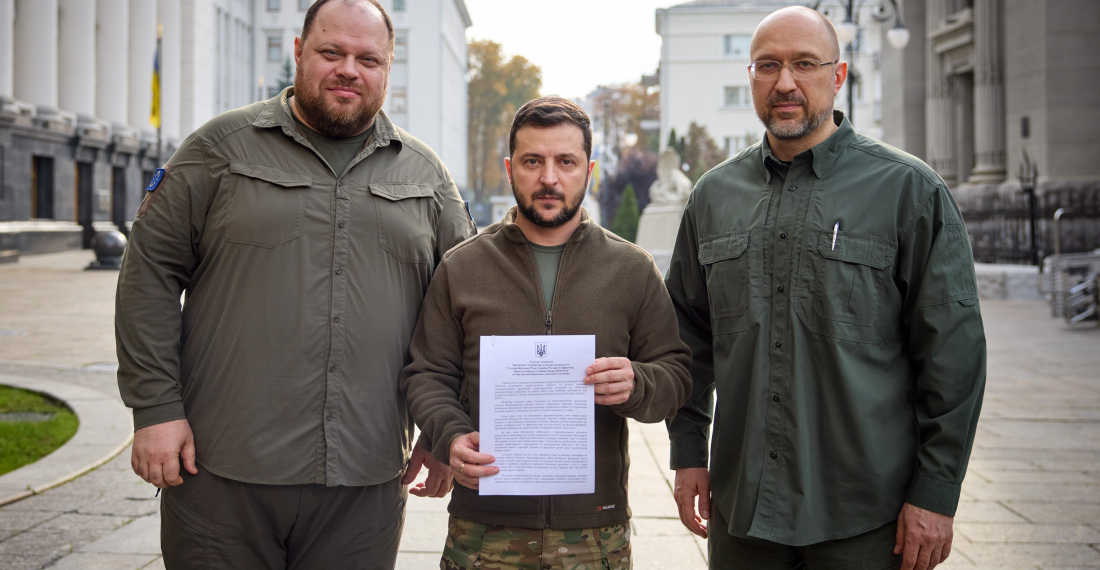On Friday (30 September) Ukrainian President Volodymyr Zelensky announced that Ukraine is filing for membership of NATO under an expedited procedure.
Speaking shortly after Russian President Vladimir Putin announced the annexation of four Ukrainian regions into Russia - none of which Russia actually controls in its entirety - Volodymyr Zelensky issued a video on social media saying:
"Ukrainians! And all our friends and allies! De facto allies. Today, here in Kyiv, in the heart of our country, we are taking a decisive step for the security of the entire community of free nations [...] It is here, in Ukraine, that the values of our Euro-Atlantic community have obtained real vital energy. The strength of the nation that fights for freedom, and the strength of the nations that help in this fight. We are de facto allies. This has already been achieved. De facto, we have already completed our path to NATO. De facto, we have already proven interoperability with the Alliance’s standards, they are real for Ukraine - real on the battlefield and in all aspects of our interaction.We trust each other, we help each other and we protect each other. This is what the Alliance is. De facto. Today, Ukraine is applying to make it de jure. Under a procedure consistent with our significance for the protection of our entire community. Under an accelerated procedure."
President Zelensky also noted that it is indeed possible to become a NATO member without having previously received a Membership Action Plan, as Finland and Sweden indeed did earlier this year in response to Russia's full-scale invasion of Ukraine on 24 February.
source: commonspace.eu with agencies
photo: Ukrainian Government






